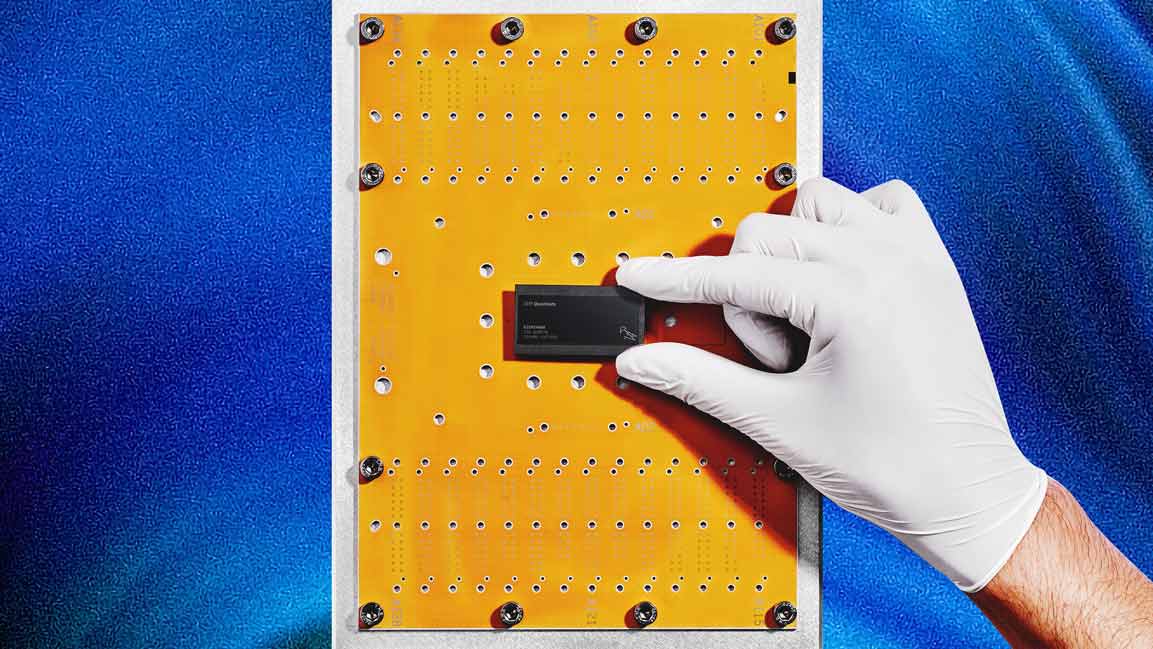IBM Adds Nighthawk and Loon to Its Quantum Portfolio
The new processors aim to push today’s quantum systems to handle deeper calculations while laying the groundwork for error-corrected machines later this decade.
Topics
News
- Adani Power Sets Up Nuclear Subsidiary
- Musk Unveils xAI Overhaul, Lunar AI Ambitions
- Former GitHub CEO Dohmke Raises $60 Million to Build AI Code Infrastructure
- Leadership Shakeup Deepens at xAI as Two Co Founders Exit
- India Slashes Social Media Takedown Window to Three Hours
- Cisco Moves to Relieve AI Data Center Gridlock With New Chip

IBM on Wednesday introduced two new quantum processors, Nighthawk and Loon, positioning them as parallel steps toward its target of demonstrating quantum advantage by the end of 2026 and building fault-tolerant quantum machines by 2029.
The announcements came at the company’s Quantum Developer Conference, where IBM said the new hardware is meant to push quantum systems toward handling deeper, more reliable calculations than today’s devices allow.
Nighthawk is IBM’s latest working processor. It has 120 qubits and a more tightly connected design than the previous generation, which the company says lets it run calculations roughly 30% more complex while keeping error rates low.
The chip is expected to run up to 5,000 two-qubit operations now, with future versions planned to handle 7,500 operations next year, 10,000 in 2027 and around 15,000 by 2028 as systems scale toward larger machines.
Loon sits at a different but equally critical point in the roadmap. It is an experimental processor aimed at testing the building blocks of large-scale error correction, a necessary capability for fault-tolerant quantum computing.
IBM said it has already demonstrated several features that will underpin Loon, including high-quality, low-loss routing layers known as “c-couplers” for linking distant qubits on a single chip, as well as methods for resetting qubits between operations.
The company said Loon will provide the foundation for the hardware required to support deep, error-corrected circuits aimed at the long-term challenge of making quantum systems stable enough to run long, complex programs without failure.
“There are many pillars to bringing truly useful quantum computing to the world,” said Jay Gambetta, director of IBM Research and an IBM Fellow. “We believe IBM is uniquely positioned to develop and scale quantum software, hardware, fabrication and error correction to unlock new applications.”
IBM also announced a community-run tracker, created with Algorithmiq, the Flatiron Institute and BlueQubit, to monitor and verify claims of quantum advantage as they appear.
The tracker will publish tests that can be compared directly with the best classical methods. IBM said it expects the first widely accepted demonstrations of quantum advantage to emerge by the end of next year.
Sabrina Maniscalco, co-founder and CEO of Algorithmiq, said her team’s model for the tracker “explores regimes so complex that it challenges all state-of-the-art classical methods tested so far.”
Hayk Tepanyan, CTO and co-founder of BlueQubit, said the effort comes “as quantum computers enter a regime beyond classical.”
With Nighthawk offering near-term performance gains and Loon testing the long-term foundations, IBM said the two processors form the next major steps in its plan to move quantum computing from experimental hardware to practical capability.






